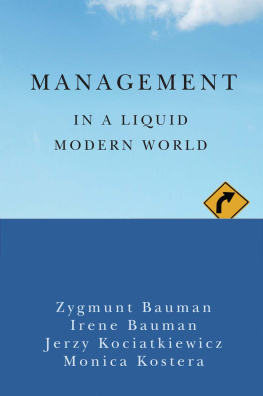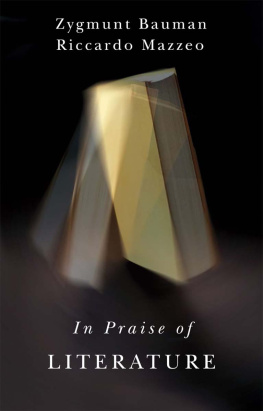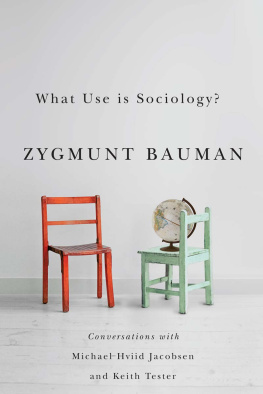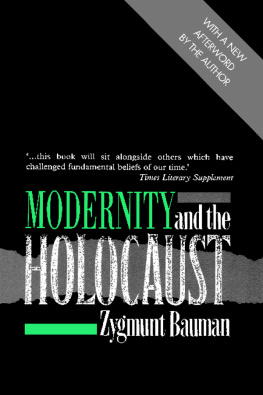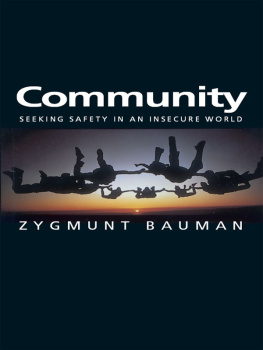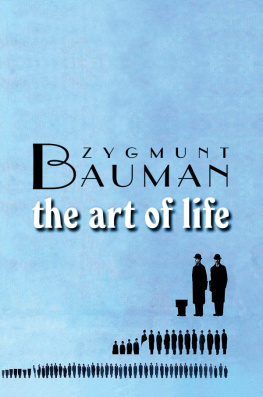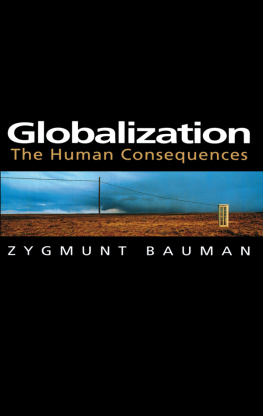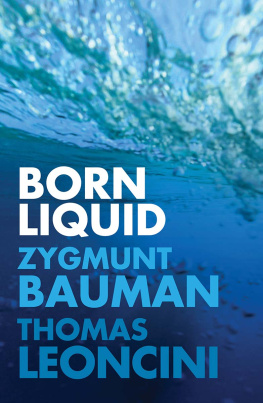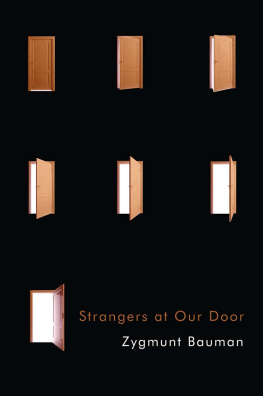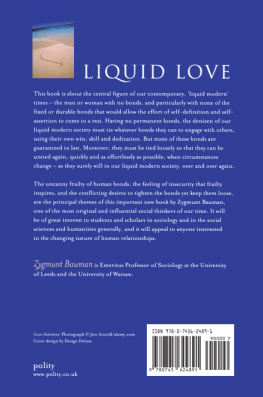THE EMERALD GUIDES TO
SOCIAL THOUGHT
Series Editor: John Scott
The Emerald Guides to Social Thought are a series of student-oriented guides to major thinkers on social issues.
Each book is an authoritative primer that takes the reader through the key ideas of a thinker in order to provide a firm foundation for an independent reading of primary texts, for engagement with the secondary literature and for reading contemporary extensions and elaborations of those ideas. The Guides demonstrate the mind of the theorist at work by tracing the development of that thought through successive texts or by elucidating the various topics to which they have been applied.
Emerald Guides place the work of a thinker in the context of her or his life and times. Substantive and comprehensive chapters on key issues are followed by full guides to sources of information and translation that provide a clear map of the thinkers intellectual development and to major items of commentary, debate and application of their ideas.
The Guides are uniquely authoritative and accessible and provide the foundations of a scholarly library that allow the reader to develop his or her own ideas regarding influential thinkers and theorists.
Emerald Publishing Limited
Howard House, Wagon Lane, Bingley BD16 1WA, UK
First edition 2020
2020 Shaun Best. Published under exclusive licence by Emerald Publishing Limited
Reprints and permissions service
Contact:
No part of this book may be reproduced, stored in a retrieval system, transmitted in any form or by any means electronic, mechanical, photocopying, recording or otherwise without either the prior written permission of the publisher or a licence permitting restricted copying issued in the UK by The Copyright Licensing Agency and in the USA by The Copyright Clearance Center. Any opinions expressed in the chapters are those of the authors. Whilst Emerald makes every effort to ensure the quality and accuracy of its content, Emerald makes no representation implied or otherwise, as to the chapters suitability and application and disclaims any warranties, express or implied, to their use.
British Library Cataloguing in Publication Data
A catalogue record for this book is available from the British Library
ISBN: 978-1-83909-741-6 (Print)
ISBN: 978-1-83909-738-6 (Online)
ISBN: 978-1-83909-740-9 (Epub)
1
BAUMAN: LIFE, CAREER AND POLITICS
As a general sociologist and social theorist, Zygmunt Baumans published work is wide-ranging including discussions of social class, socialism, neoliberalism, hermeneutics, critical theory, the Holocaust, modernity, postmodernity, consumerism, globalisation, surveillance, ethics and sexuality. He was a prolific commentator on contemporary life, but for a few of his readers, his ideas and arguments were not always systematic. Bauman is a cultured person and often draws explicitly on literature he refers to Kafka, Musil, Kundera, Borge, Cervantes and many others. In addition, Bauman tends to define things merely by outlining and explaining what they not, and he makes frequent use of metaphor in his work. These tendencies can detract from the clarity of his work and the quality of his explanation building. Also, Baumans style of writing is marked by a high degree of self-referentiality. Commentators have noted that Bauman often engages in self-plagiarising material, cutting and pasting sections of texts from earlier texts in his work. This means that in Baumans work, the underpinning themes and some of the central arguments are repeated across his work, with new material added in each text. Baumans habit of repetition is reflected in the chapters of this book.
Young Zygmunt Bauman lived with his mother Zofia, his father Maurycy and his older sister Tauba. In 1921, like many other Polish Jews the Baumans moved from Supca to Pozna, where Zygmunt was born in 1925. Zofia was described by Zygmunt as an excellent cook and said that this was the reason why he was overweight as a child. As part of the dowry, Maurycy Bauman was given a fabric shop that quickly went bankrupt, due to his lack of business expertise and competence. In 1931, Maurycy took what money the family had left and moved to Paris to find work. Zofia, Taubaa and Zygmunt remained in Pozna at the family home at number 17 Jeyce at Prusa. They were one of the few Jewish families in a relatively affluent district. On 3 September 1939, a week before the Germans entered Pozna, the Bauman family managed to board a train for Inowrocaw, leave Poland and start a life in the Soviet Union. Whilst gentile Poles saw little difference between the Nazis and the Soviets, both were invading forces. For the Jewish population, the Soviet forces offered the only protection available from death at the hands of the Nazis. Consequently, Polish Jews came to be seen disloyal to the Polish cause. In 1943, Zygmunt joined the Polish division of the Red Army. He was wounded in the battle for Kohlberg but was fit to take part in the battle for Berlin.
In 1948, Zygmunt married Janina Lewinson. In 1939, Janina was a teenager from an affluent Jewish family in Warsaw. Janina Lewinsons family owned a car and lived in a seven-room apartment in Sienna in Warsaw, and her grandfather built a beautiful villa in Konstancin, which was used by the whole family in spring and summer. They had no connection with the communists, nor with religious Jews or Zionists. The Lewinson family were completely assimilated Jewish people, neither parents nor grandparents, nor even great grandparents spoke Hebrew. They did not consider emigrating to Palestine and regarded Poland was their homeland. Janinas parents had ambitions that she would also become a doctor like her father Szymon and grandfather Aleksander Fryszman. In April 1946, Janina became seriously ill. For the last few months of war she had suffered from tuberculosis. During her convalescence, she moved to rdborw and became a teacher. After a year, she returned to her family home and worked at the Central Committee of Polish Jews. In 1947, she applied to read journalism at the Warsaw Academy of Political and Social Science, where she met her future husband, Zygmunt by chance at the cinema. Janina and Zygmunt were married for 62 years, and Janina Bauman died in 2009.
In 1948, Janina began working at Film Polski under the direction of Ruta Radkiewiczowa, wife of General Stanisaw Radkiewicz, Minister of Public Safety and a senior figure in the Bierut Government. In 1949, their first child Anna was born. In 1950, Zygmunt became one of the youngest majors in the Polish Peoples Army. In the early 1950s, the Baumans were the model socialist family. They believed in communism and the direction of the Polish state without question, and the state rewarded them with success and recognition.
Janinas book Winter in the Morning is a harrowing autobiographical account of her wartime experiences and that of her family and friends under Nazi occupation. She gives a first-hand account of life in the Warsaw ghetto, where she lived for 26 months, her survival in the ghetto before her escape with her mother and younger sister and their life in hiding. Janinas second book outlines her first meeting with and relationship with Zygmunt, their domestic life in Warsaw, post-war reconstruction and communism in Poland, the disillusionment with communism after the death of Stalin, the emergence of a police state in Poland and their forced leaving for Israel and adjusting to life in Leeds.




